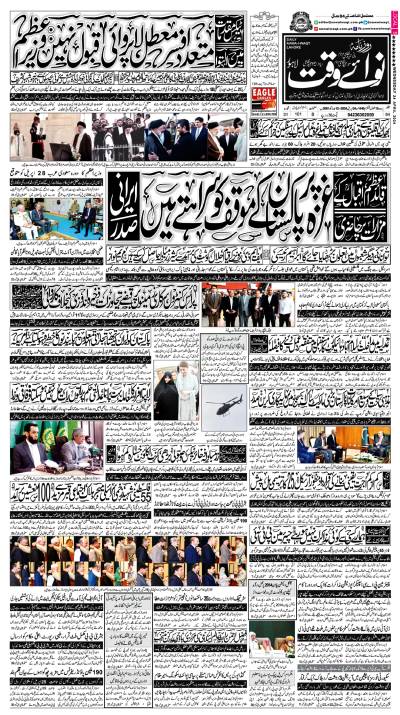MOSCOW/TOKYO - World powers will meet Iranian top representatives to discuss the Islamic state’s disputed nuclear programme in Istanbul at the end of January, a Russian official said on Friday.
Iran and the so-called “P5+1” nations - the five permanent UN Security Council members along with Germany - have not all met since a June session in Moscow.
But an unnamed Russian source told the state RIA Novosti agency that the next meeting has been provisionally scheduled for the end of the month in Istanbul - host of the first such talks last April. The source did not name a specific date or say when one might be announced.
However, Deputy Foreign Minister Sergei Ryabkov - Russia’s pointman at the talks and most senior Iran expert - expressed frustration that an exact date had not been fixed.
“We have had situations in the past when we had trouble agreeing a time and place, and we have one now today,” Interfax quoted Ryabkov as saying.
He stressed that Moscow wanted to see the momentum of talks continue “without significant delays.” Ryabkov gave no indication whether it was Iran or Catherine Ashton - the EU foreign affairs chief and main Western representative at the negotiations - who had the most serious reservations about new talks. Three prior “P5+1” meetings have been held with Iran at the most senior level envisioned for the Istanbul session.
None has produced a compromise that sees the powers accept Iran’s right to enrich uranium in exchange for its provision of access to closed nuclear facilities and its promise not to make higher-grade material. Israel and much of the West suspects Iran is trying to develop atomic weapons under the guise of its nuclear energy programme. Tehran denies the charge. While the UN nuclear chief said he was not hopeful of striking a deal with Iran next week that would see Tehran address allegations of past nuclear weapons research and grant access to controversial sites.
Yukiya Amano, director general of the International Atomic Energy Agency, said the outlook for an agreement between IAEA officials and their Iranian counterparts when they meet on January 16 was “uncertain”.
His remarks came after Iran Wednesday poured water on the UN watchdog’s hopes of securing access to the Parchin military complex where suspected past research into atomic bomb triggers might have been carried out.
Wednesday, April 24, 2024
Iran, world powers set N-talks date
Uncapped all-rounder in Zimbabwe's squad for Bangladesh tour
5:26 PM | April 24, 2024
IHC reserves decision on cases against Sheikh Rashid over same allegation
5:17 PM | April 24, 2024
Pakistan, Iran for energy cooperation including IP Gas Pipeline
5:16 PM | April 24, 2024
Sahibzada Hamid named chairman of Public Accounts Committee by PTI founder
5:15 PM | April 24, 2024
Law minister meets IPC delegation
5:14 PM | April 24, 2024
Academic Uprising
April 24, 2024
Cooperation Momentum
April 24, 2024
Facing Reality
April 24, 2024
Absent Academia
April 23, 2024
Murree’s Redemption
April 23, 2024
Population paradox
April 24, 2024
Unveiling differences
April 24, 2024
Space print revolution
April 23, 2024
Digital grievance
April 23, 2024
Wonders of VR
April 22, 2024
ePaper - Nawaiwaqt
Advertisement
Nawaiwaqt Group | Copyright © 2024





